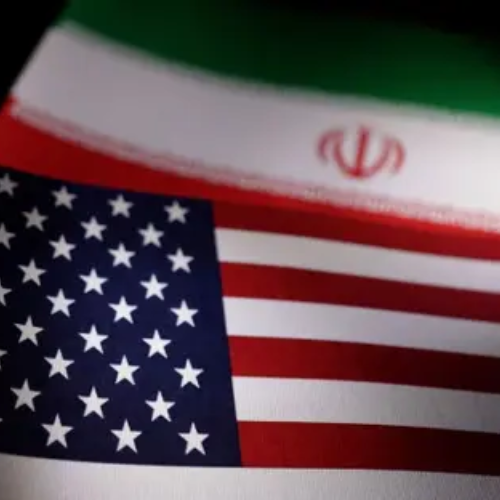The United States has imposed tough new sanctions on Iran, aiming to cut off the country’s oil revenue and prevent it from developing nuclear weapons. The State Department announced these sanctions as part of a policy called “maximum pressure,” which is designed to weaken Iran’s ability to fund activities that the U.S. considers dangerous.
The sanctions target 16 companies and ships involved in Iran’s oil trade. Additionally, the Treasury Department has sanctioned 22 people and blocked 13 oil tankers from operating in international markets. Many of these entities are based in countries like China, India, and the United Arab Emirates (UAE), which are key players in the global oil market. The goal is to disrupt Iran’s ability to sell its oil and make money from it.
A U.S. government spokesperson explained that Iran uses a secret network of ships and brokers to hide its oil sales. These hidden transactions have helped Iran move tens of millions of barrels of oil, worth hundreds of millions of dollars. The U.S. believes that this money is used to fund activities that threaten peace in the region.
Hungary’s Bold Resistance: Delaying EU Sanctions Amid U.S.-Russia Talks
Targeting Iran’s Global Oil Network
The Treasury Department has identified several companies and individuals who help Iran sell oil in violation of U.S. sanctions. Some of them operate in the UAE and Hong Kong, while others are linked to Iran’s National Oil Company and the Iranian Oil Terminals Company. These organizations are accused of helping Iran generate money that the U.S. says is used for destabilizing activities.
The latest sanctions make it difficult for Iran to use international banking systems and ship its oil across the world. Companies that continue to do business with these sanctioned entities also risk penalties. U.S. officials warned that any person or company caught dealing with Iranian oil could face serious consequences, including losing access to the U.S. financial system.
A top U.S. Treasury official stated that Iran relies on a “shadowy network” to keep its oil trade going. The new sanctions aim to expose and block these hidden deals. By cutting off these sources of income, the U.S. hopes to weaken Iran’s ability to fund activities that it considers dangerous.
Trump’s Trade Tsunami to Crush India Soon ; US to Unleash Reciprocal Tariffs
Strong Stance Against Iran’s Nuclear Ambitions
The U.S. has made it clear that it will not allow Iran to develop nuclear weapons. A high-ranking U.S. official stated in an interview that if Iran were to obtain nuclear weapons, it could pose a serious threat to global security. The U.S. believes that Iran could use nuclear weapons to pressure other countries and possibly attack its regional rivals.
While the U.S. has not revealed all of its strategies to prevent a nuclear Iran, officials insist that all options are on the table. The administration prefers diplomatic solutions but is ready to take stronger action if necessary.
In addition to these sanctions, tensions between the U.S. and Iran remain high. Last year, the U.S. accused Iran of planning an assassination attempt against U.S. president, allegedly as revenge for the 2020 killing of a top Iranian military leader. Iran has denied this accusation.
The U.S. government has emphasized that as long as Iran continues to use its oil revenue to fund activities deemed dangerous, the sanctions will continue. These latest restrictions are part of an ongoing effort to weaken Iran’s economy and limit its influence on global affairs.


